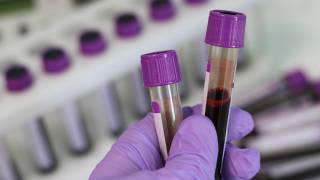North Carolina Confirms 495 Hepatitis A Cases

The North Carolina Department of Health and Human Services (NCDHHS) recently announced the state had surpassed 1,000 reported cases of hepatitis A associated with a national outbreak that began in April 2017.
In addition, NCDHHS confirmed 63% of patients had required hospitalization, and 16 people have died from hepatitis A.
Since January 2021, 495 outbreak-associated cases of hepatitis A were reported by NCDHHS, indicating a marked increase in virus transmission.
Of the 2021 cases, 13% are also infected with hepatitis B and 48% with hepatitis C.
During the outbreak, Kentucky (5,132) and Florida (5,089) have reported the most hepatitis A cases in the USA.
Because hepatitis A causes inflammation of the liver, people with other forms of viral hepatitis or anyone with underlying liver disease are at risk of more serious illness if infected.
Since the outbreak began in 2017, the U.S. CDC’s Division of Viral Hepatitis has received about 41,855 reports of hepatitis A and 382 related deaths as of July 23, 2021.
The hepatitis A vaccine is the best way to prevent HAV infection. One dose of single-antigen hepatitis A vaccine has been shown to control outbreaks of hepatitis A.
And, prevaccination serologic testing is not required to administer a hepatitis A vaccine. Vaccinations should not be postponed if vaccination history cannot be obtained or records are unavailable.
People at risk for acquiring HAV infection or developing serious complications from HAV infection during the current hepatitis A outbreaks should be prioritized to receive the hepatitis A vaccine as soon as possible to do so safely, says the CDC.
The risk for person-to-person transmission of HAV continues during the COVID-19 pandemic, says the CDC.
"The best way to protect yourself against hepatitis A is through vaccination," said Dr. Erica Wilson, vaccine-preventable disease medical director in NCDHHS’ Division of Public Health, in a press statement issued on July 27, 2021.
"As always, good hand-washing is key, especially after using the bathroom, changing diapers, and before preparing or eating food. Using harm reduction strategies and syringe service programs is also key in reducing the risk for people who use drugs."
An updated list of U.S. FDA Approved hepatitis vaccines and vaccine candidates is published on this webpage.
Hepatitis A is usually transmitted through food or water that has been contaminated with small, undetectable amounts of feces from a contagious person. Individuals who use drugs, are experiencing homelessness, or men who have sex with men are at the highest risk for infection during the current outbreak.
Symptoms of hepatitis A include fever, fatigue, nausea, loss of appetite, and stomach pain. Jaundice (yellowing of the skin and/or eyes), dark-colored urine, and clay-colored bowel movements may also occur.
These symptoms appear 15-50 days (average 28 days) following infection with the virus.
However, young children can be infected without apparent symptoms.
The NCDHHS advises anyone with symptoms of hepatitis A to contact their health care provider or their local health department to be tested and linked to care assistance.
In addition, anyone exhibiting these symptoms should refrain from preparing food for others. Patients can transmit the virus to others in the two weeks before and one week after jaundice appears.
People with severe underlying medical conditions, such as hepatitis A, may be at higher risk for severe illness from COVID-19. Additional co-administration information is available on this CDC webpage.
PrecisionVaccinations publishes fact-checked research-based news.
Our Trust Standards: Medical Advisory Committee
























